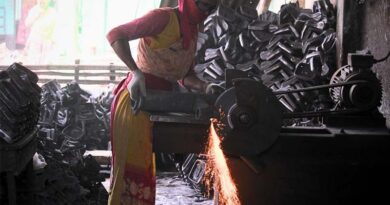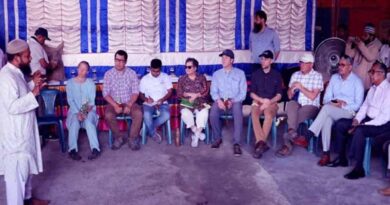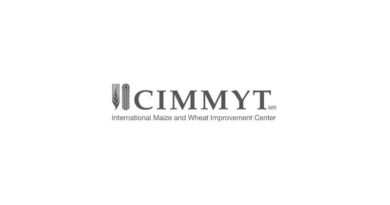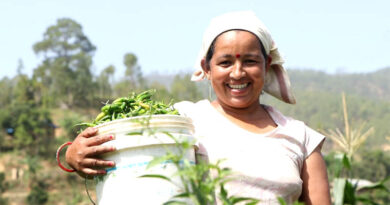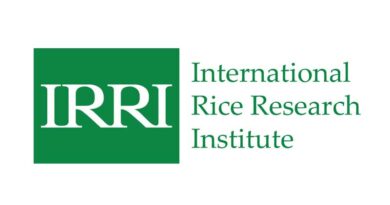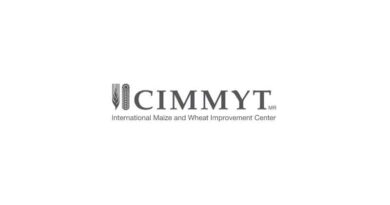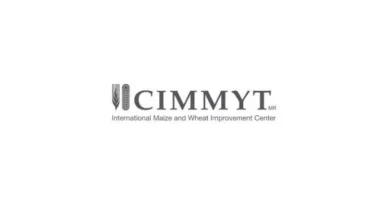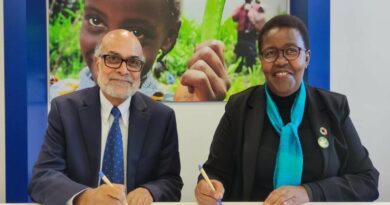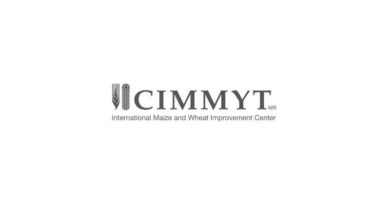A community leader in Baliakandi inspires women empowerment in agriculture: Promila Rani Mondol
05 April 2024, Bangladesh: Thirty-three-year-old Promila Rani Mondol lives in Baliakandi Upazila in Bangladesh with her husband, four daughters, and mother-in-law. The family’s main source of livelihood is agriculture. Promila has become a successful machinery solution provider (MSP), under the USAID-funded Feed the Future Cereal Systems Initiative for South Asia–Mechanization Extension Activity (CSISA-MEA). She and her husband are the main earning members of the family.
In Rajbari district, around 100 miles away from Dhaka, the capital of Bangladesh, agriculture is the primary livelihood for the community. Farmers engage in crop cultivation across three different seasons, focusing on crops such as rice, wheat, maize, jute, mustard, spices, and vegetables. In 2014, Promila’s family had barely two acres of cultivable land, and her husband was the sole breadwinner. Their average monthly income was US $91, which made it challenging to cover everyday expenses. To increase their family income, she began assisting her husband in crop production activities by planting seeds of jute, maize, wheat, mustard, and spice crops.
In 2014, the family became involved with the CSISA-MI project. Initially, they owned a power tiller. The project assisted them to purchase a power tiller-operated seeder attachment for land cultivation and line sowing. In 2018, Promila received training in line sowing techniques, including seed calibration using the power tiller operated seeder (PTOS) machine which was equipped with a starter kit. She began line sowing Rabi crops such as wheat, mung beans, sesame, and mustard. During the Kharif season, she engaged in line sowing jute.
After the launch of the CSISA-MEA in 2019, Promila participated in several activities including hands-on training on rice transplanter operation, one-acre mechanized rice transplantation demonstration by CSISA-MEA for her service business expansion, seedling raising training, two-day training on agricultural machinery operation maintenance and troubleshooting, and two exposure visits on rice transplanter service business models. With the assistance of CSISA-MEA, she organized several meetings to connect mat seedling (seedlings grown on a special mat or seedling tray), entrepreneurs, farmers, and MSPs, which led to the expansion of her business prospects. Additionally, CSISA-MEA linked her with the Department of Agricultural Extension, where she procured 1,750 seedling raising trays and 750 kg of seed support for mat seedling raising, significantly boosting her business growth.
In 2023, Promila bought a rice transplanter before Aman season (mid-July to mid-November-December) with a 50% government subsidy. CSISA-MEA helped her get the government subsidy and connected her with the VPKA foundation, which provided her with loan at a low-interest rate of 4%, along with a flexible repayment plan.
During the Aman season, she provided rice transplantation services in 20 hectares of land benefiting approximately 150 farmers. During that season, her total earning was US $1,640. Additionally, in 2023, she earned approximately US $1,047 by line sowing aus rice and jute; and line sowing wheat, sesame, and mustard by PTOS during the Rabi season. Through her network of contacts with farmers across three blocks (shalmara, baliakandi, and nobabpur in Rajbari district), she offers machine rice transplantation services using the seedlings.
What sets her apart is not just her success as an MSP, but her commitment to breaking gender norms and inspiring other women in her community. Currently, with an annual income of US $2,276 and a profit margin of US$1,184, she has become a community leader, encouraging 15 other women to venture into farming and seedling raising services.
“With just one day of cultivation and seeding service, I can cover my daughter’s tutorial expenses for an entire month. The support from CSISA-MEA has made me more self-reliant as an MSP and increased my confidence in meeting family expenses,” says Promila.
Currently, 15 women in her community offer farming and seed planting services. Others, such as Sunita Rani, Niba Rai, Rakoli, Dipti, Mita, and Angoli, are inspired by her. While seven women can now operate the rice transplanter machine in the fields, others are showing an interest in the same. This is a significant and positive change in the community initiated by Promila.
Her impact extends beyond her own success; she has sparked a positive change in her community’s perception of women in agriculture. As the vice president of the MSP Networking Committee in Rajbari district, she continues to shoulder responsibilities, contributing not only to her family’s well-being but also to the larger narrative of women empowerment in Bangladesh.
Also Read: Drumstick Cultivation, an Example From Gujarat, Turning a Poor Farmer Into a Millionaire
(For Latest Agriculture News & Updates, follow Krishak Jagat on Google News)


